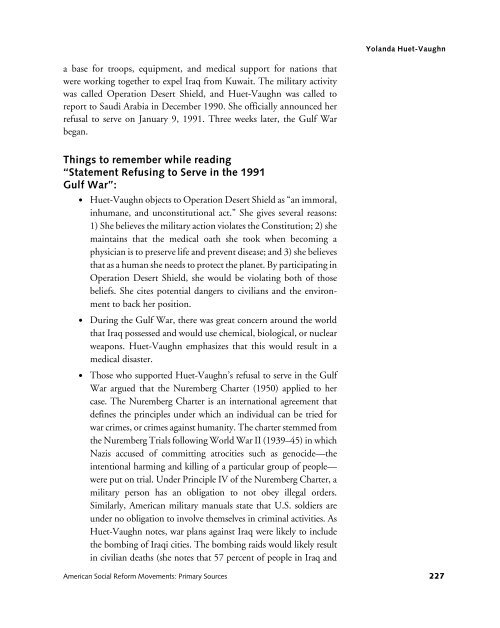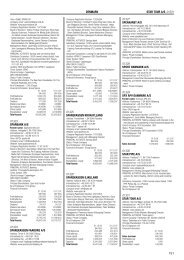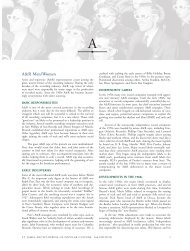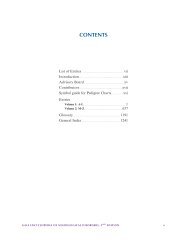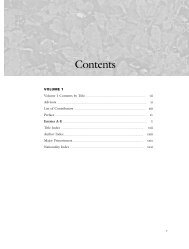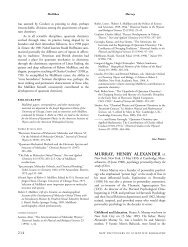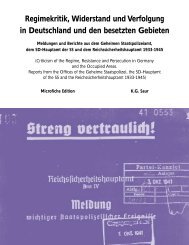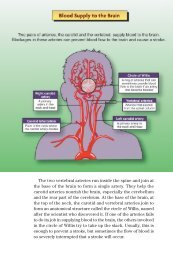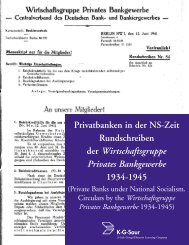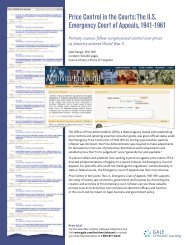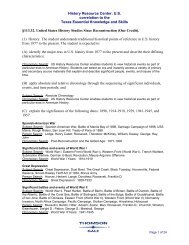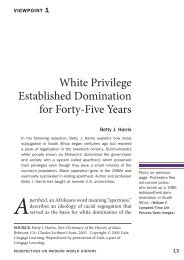Yolanda Huet-Vaughn - Gale
Yolanda Huet-Vaughn - Gale
Yolanda Huet-Vaughn - Gale
Create successful ePaper yourself
Turn your PDF publications into a flip-book with our unique Google optimized e-Paper software.
a base for troops, equipment, and medical support for nations that<br />
were working together to expel Iraq from Kuwait. The military activity<br />
was called Operation Desert Shield, and <strong>Huet</strong>-<strong>Vaughn</strong> was called to<br />
report to Saudi Arabia in December 1990. She officially announced her<br />
refusal to serve on January 9, 1991. Three weeks later, the Gulf War<br />
began.<br />
Things to remember while reading<br />
‘‘Statement Refusing to Serve in the 1991<br />
Gulf War’’:<br />
<strong>Huet</strong>-<strong>Vaughn</strong> objects to Operation Desert Shield as ‘‘an immoral,<br />
inhumane, and unconstitutional act.’’ She gives several reasons:<br />
1) She believes the military action violates the Constitution; 2) she<br />
maintains that the medical oath she took when becoming a<br />
physician is to preserve life and prevent disease; and 3) she believes<br />
that as a human she needs to protect the planet. By participating in<br />
Operation Desert Shield, she would be violating both of those<br />
beliefs. She cites potential dangers to civilians and the environment<br />
to back her position.<br />
During the Gulf War, there was great concern around the world<br />
that Iraq possessed and would use chemical, biological, or nuclear<br />
weapons. <strong>Huet</strong>-<strong>Vaughn</strong> emphasizes that this would result in a<br />
medical disaster.<br />
Those who supported <strong>Huet</strong>-<strong>Vaughn</strong>’s refusal to serve in the Gulf<br />
War argued that the Nuremberg Charter (1950) applied to her<br />
case. The Nuremberg Charter is an international agreement that<br />
defines the principles under which an individual can be tried for<br />
war crimes, or crimes against humanity. The charter stemmed from<br />
the Nuremberg Trials following World War II (1939–45) in which<br />
Nazis accused of committing atrocities such as genocide—the<br />
intentional harming and killing of a particular group of people—<br />
were put on trial. Under Principle IV of the Nuremberg Charter, a<br />
military person has an obligation to not obey illegal orders.<br />
Similarly, American military manuals state that U.S. soldiers are<br />
under no obligation to involve themselves in criminal activities. As<br />
<strong>Huet</strong>-<strong>Vaughn</strong> notes, war plans against Iraq were likely to include<br />
the bombing of Iraqi cities. The bombing raids would likely result<br />
in civilian deaths (she notes that 57 percent of people in Iraq and<br />
<strong>Yolanda</strong> <strong>Huet</strong>-<strong>Vaughn</strong><br />
American Social Reform Movements: Primary Sources 227


